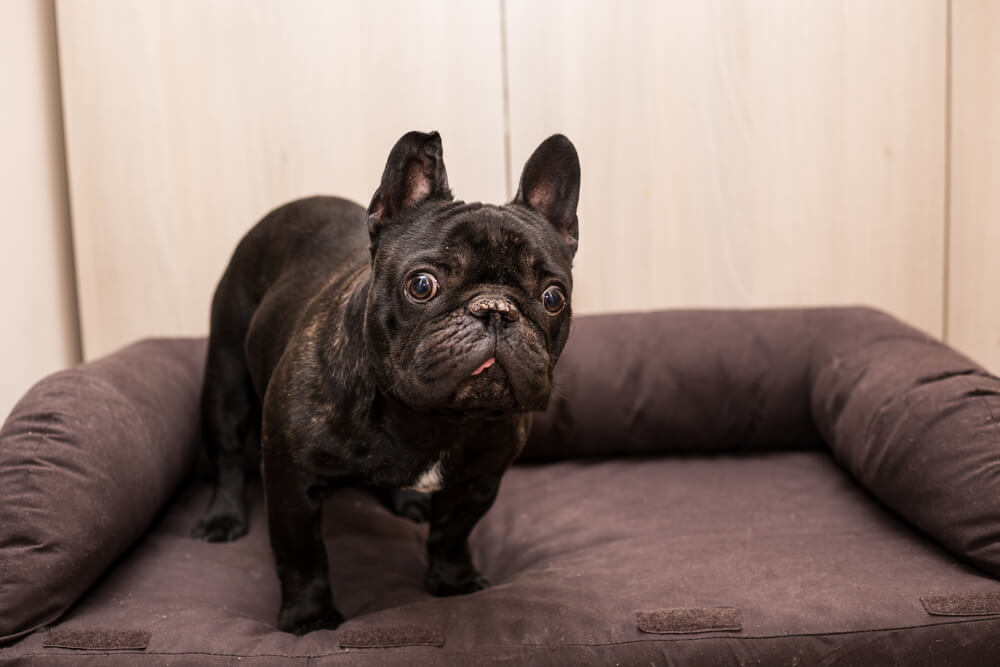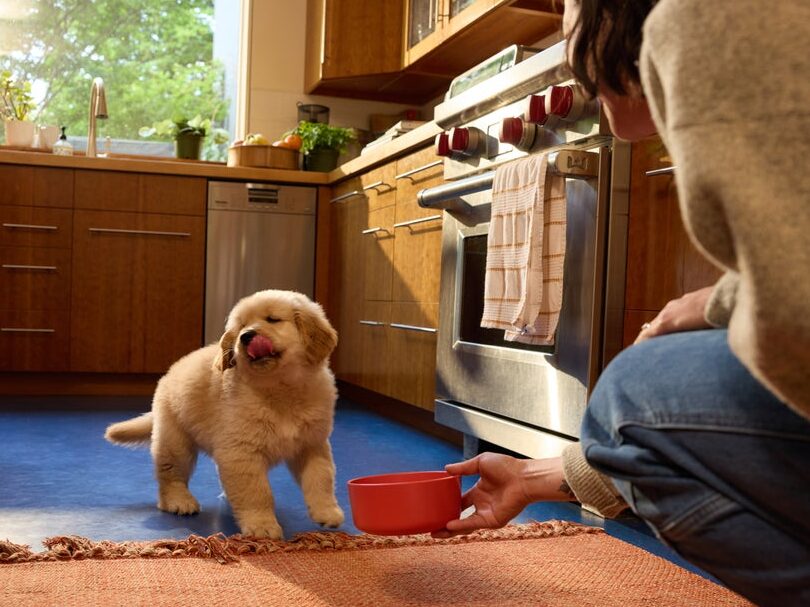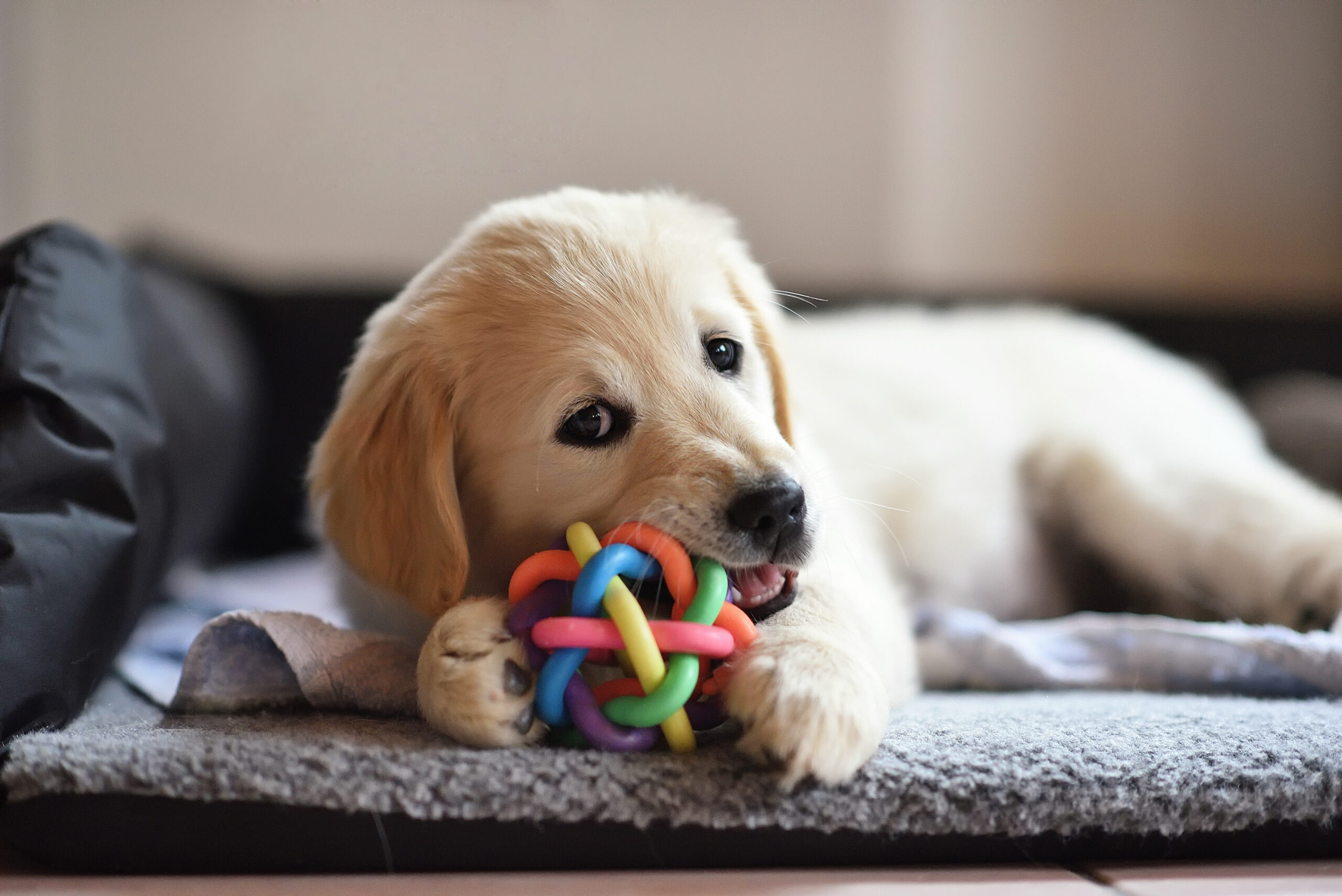Hey Ollie blog readers! We’re offering you an exclusive 60% OFF your starter box! Try now!
Ever try to settle in for the night only to have to watch your dog perform his 20-minute nightly ritual? He might scratch at the bedding, fluff everything around so it’s just perfect then circle three times before plopping into the bed! While this routine might bring a smile to your face it might also raise some questions – why does my dog do this? What does it mean? Should they be doing this or is it bad behavior?
This behavior also called denning, is not bad behavior, it is perfectly natural. Learn more about why your dog does this – and what to do if you need it to stop.
Four reasons why dogs dig in their beds
While we may not know exactly why dogs to this since they can’t explain, these four theories are the best that we know:
1. Temperature
You may catch your pup digging if they are too hot or too cold. They are just trying to get comfortable before settling in. If your bedroom (or wherever your dog sleeps) regularly runs hot or cold consider adjusting the temperature to your pup’s liking. You may need to invest in a fan or a space heater. If using the latter never leave it on when your pet is home alone and be sure to always supervise your pet when it is in use.
2.Marking the bed
Nothing says this is mine like marking the territory. Scratching or digging might just be another way your pup marks their territory. If you share a bed with your pup or have multiple dogs in your household, this might be why your pup is digging at the bed. He or she is just claiming their space.
3. Camouflage
Is your pup trying to hide from monsters under the bed? Maybe. Digging may be an instinctual behavior from before dogs were domesticated. Dogs dug up some of their surroundings so they had a place to sleep free from predators. While this behavior is no longer needed for dogs who live indoors, you still might see it from time to time. If you can’t find your pup, maybe they have become one with their blanket or bed!
4. Finding the hidden treasure
If your pup regularly drags toys into the bed (theirs or yours) you may catch them digging to find what they left behind. You should be careful with bones or bully sticks in the bed. Not only do some of them have a strong scent, but they can stain. Try to choose bones that don’t stain or can be easily washed if you think your pup is bringing them into your bed. You also might need to watch where your dog takes treats – you don’t want crumbs in the sheets.
How to prevent digging in the bedding
While this behavior is relatively harmless, there may be times where you want to stop your pup’s digging. This could be due to them damaging your bedding, digging too long or digging in a way that is compulsive. To stop this behavior simply try redirecting them. You can use the down or settle command if your dog knows it or use a toy or even treat to stop the digging. If your pup is damaging your bedding, think about giving them their own blanket or sheet to dig at – thus sparing your good stuff.
If the behavior is compulsive or hard to stop, try scheduling a behavioral consult with your vet or trusted trainer. You might need a little more help stopping the behavior if it is actually a compulsion. This can happen to any dog but is more likely when bringing home a rescue pup.
Other common dog behaviors before sleep and what they mean
Walking in a circle
Your pup may walk in a circle after digging around in bed to settle down. This behavior is a holdover that like digging can help your pup feel safe, regulate temperatures or hide from the middle of the night attacks.
Scratching the bed
Digging might also be accompanied by scratching. Your pup may scratch at couch cushions, pillows or blankets to get them just so before bedtime.
Snuggling up to you or another dog
If you’ve ever seen puppies sleep they generally pile together. Now that your dog is growing up, they still may choose to snuggle with your or another family member (human, feline or canine) for a good night’s sleep. This might be due to their pack mentality – anyway, it might be a very cozy way to sleep. In fact, studies have shown that women sleep better with a dog than a cat or human partner.
Sighing
Does your pup let out a content sigh as they settle in for the night? It could just be their way of saying they’ve had a fun day and they’re ready for bed!
However your pet gets ready for bed, hopefully, you’re both getting a good night’s sleep. Whether your pet sleeps in bed with you or has their own space, a bedtime ritual can be good for both you and your pet.
The Ollie blog is devoted to helping pet parents lead healthier lives with their pups. If you want to learn more about our fresh, human-grade food, check out MyOllie.com.
Tagged As:

The nutrition your dog needs,
the food they want.

Enjoying our articles? Subscribe our Newsletters and get new articles directly to your inbox
You might also like
13 May 2025
8 MINS READ
Puppy Training Guide & Behavior Timeline
Bringing home a puppy is pure magic. It’s also pure chaos—tiny teeth, zoomies, accidents in the house, and moments that make you wonder if you’re raising a future genius or a tiny tornado. …
by Ollie Pets
10 May 2025
12 MINS READ
New Puppy Checklist: Guide To Prepare For A New Dog
Bringing home a new puppy? This checklist covers everything new dog owners need—from essential supplies to training, feeding, and first vet visits.
by Ollie Pets
3 April 2025
9 MINS READ
Home Remedies for Fleas on Dogs: 10 Natural Ways That Actually Work
Wondering what kills fleas on dogs instantly and naturally? If your pup is scratching like crazy, it may be time to take action. In this guide, we’ll show you the most effective home remedies for…







